
Aleconner
Definition: an English town official formerly charged with tasting and testing ale and beer and still a titular official in some communities
The archaic word conner referred to someone who tests or examines. Since at least the 14th century, it has been paired with ale as either aleconner or sometimes ale conner or ale-conner, for someone who tastes and tests beer. Not a bad gig if you can get it!
The ale-conners also had the power of presenting, i.e., accusing at the court leet, any brewer who refused to sell ale to his neighbours though he had some for sale.
— John Bickerdyke, The Curiosities of Ale & Beer: An Entertaining History (Swan Sonnenschein & Co., 1889)Over in the City, a pint of beer is poured across a bench, and Aleconner Grant Simmons sits on it for one minute. If when he gets up, his ceremonial leather trousers stick to the bench, then the new line of ales is judged “fit and proper”.
— Fiona Campbell, The Evening Standard (London, England), 23 Apr. 2001
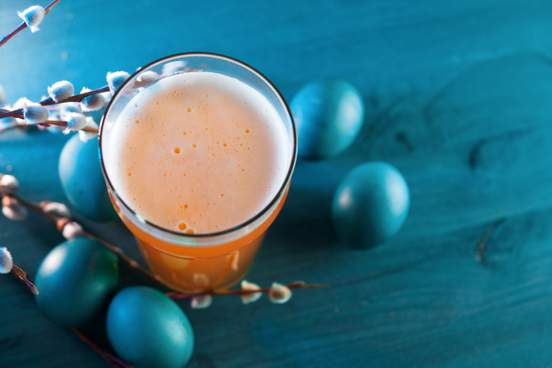
Egghot
Definition: a hot drink consisting of beer and eggs sweetened and seasoned with nutmeg
Egghot is one of three words on this list related to a combination of (hot) beer and eggs which, you know, doesn’t sound all that great until you consider how many tasty contemporary beers are brewed with surprising ingredients, from oysters to sriracha to breakfast cereal. So why not eggs? The egghot seems like a classic of the genre, and maybe the place to start if you’re ready for really hazy IPAs.
I have been drinking egg-hot and smoking Oronooko… My eyes and brain are heavy and asleep, but my heart is awake; and if words came as ready as ideas, and ideas as feelings, I could say ten hundred kind things. Coleridge, you know not my supreme happiness at having one on earth (though counties separate us) whom I can call a friend.
— Charles Lamb, The Best Letters of Charles Lamb (1892)
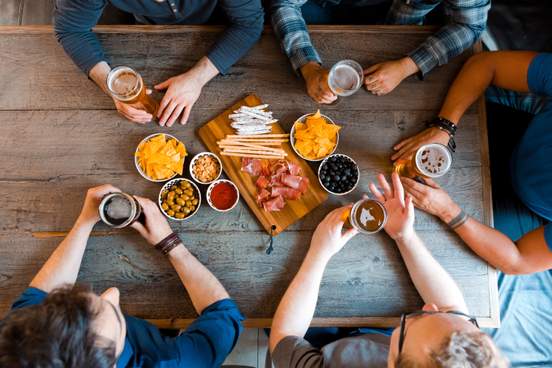
Nuncheon
Definition: a light midmorning or midafternoon snack consisting typically of bread, cheese, and beer
What about second breakfast? What about elevenses? Luncheon? Afternoon tea? Dinner? Supper? You know about them, don’t you? Okay, dear hobbit, but do you know about nuncheon? Nuncheon, in fact, may be thought of as a synonym of elevenses, being a light midmorning snack, except that it can also refer to a light midafternoon snack, and typically involves beer (nuncheon comes from the Middle English word noneschench, meaning literally “noon drink”).
The etymology of this word is a puzzle of long standing. The guess-work writers have long ago made the desperate attempt to connect it with noon-shun, because (note the ‘because,’ that marks the work of your guesser) labourers shun the heat of noon when they eat their nuncheon. But of course it is obvious that the labourer does not shun the noon itself, but only the heat of it. When the etymology of a word is unknown, there is but one thing to do, viz. to wait in patience till the light comes.
— Rev. Walter W. Skeat, A Student’s Pastime (Oxford University Press, 1896)
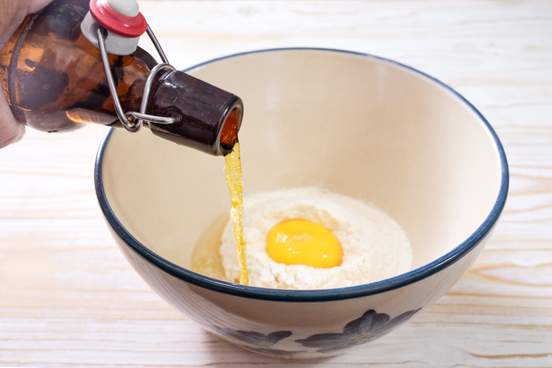
Rumfustian
Definition: a hot drink composed of strong beer, wine, gin, egg yolks, sugar, and spices
Now we’ve come to rumfustian, the second word (of three) on this list pertaining to a hot beer ‘n’ eggs bevvy that is a wee bit more involved than an egghot. Lest you imagine you’ve now discovered the perfect drink for your next nuncheon, however, keep in mind that a rumfustian also contains wine and gin, which would put quite the lie to “light snack.” Rumfustian is thought, naturally, to be a combination of rum (an old-fashioned adjective meaning “strange” or “odd”) and fustian, a word that can refer to a type of cotton fabric or to pompous writing or speech.
Rumfustian was made of a quart of strong beer, a bottle of white wine or sherry, half a pint of gin, the yolks of twelve eggs, orange peel, nutmeg, spices, and sugar.
— Alice Morse Earle, Stage-coach and Tavern Days (The Macmillan Company, 1900)
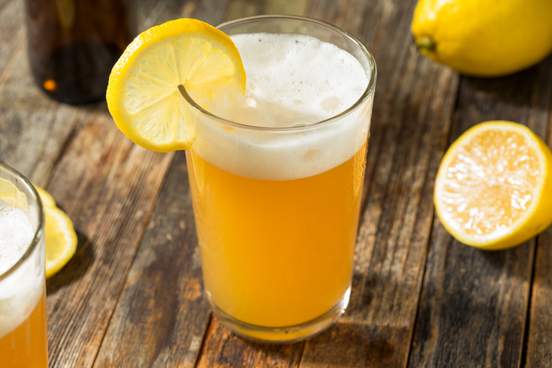
Shandygaff
Definition: beer diluted with a nonalcoholic drink (such as ginger beer)
You may be more familiar with the shortened form of shandygaff, shandy, which is used fairly often both for off-the-shelf combinations of beer and other beverages (especially lemonade), and in-house offerings at bars, brewpubs, etc. Although we don't know for sure how the name shandygaff came about, we are fairly certain that the concept of a beer cocktail traces back centuries earlier. And we are definitely sure that a shandygaff was enjoyed. Charles Dickens once commented that it was the perfect “alliance between beer and pop.”
It is believed that a continual bibbing of shandygaff saps the will, the nerves, the resolution, and the finer faculties, but there are those who will abide no other tipple.
— Christopher Morley, Shandygaff (Garden City Publishing Company, 1918)

Taplash
Definition: weak or stale beer
To say “the brackish backwash of taplash led to backlash” would be neither slapdash nor hogwash, because… taplash? Hard pass. If you’ve ever bibbled a tipple at an establishment that rarely (if ever) cleans its tap lines, you’ll know what we mean. The lash in taplash means to “an onslaught of water.” As taplash originally referred to the washings or dregs of a cask, it makes sense that weak beer would soon be compared to the watery outflow not intended for drink.
… tapsters with half-wrought froth thus give a dash to vend their stale dead-beer, and sowre taplash…
— Edmund Hickeringill, The mushroom (1682)
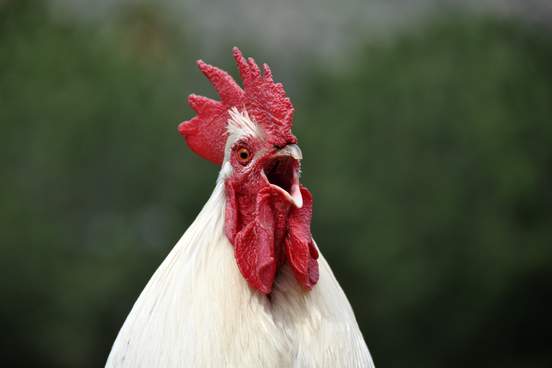
Cock ale
Definition: ale fermented with fruits, spices, and the jelly of mincemeat of a boiled cock
We will refrain from commenting too snarkily on what is a fairly self-explanatory term and definition, but will instead share Eliza Smith’s 1729 recipe for Cock Ale in full below, should you find yourself with a free weekend sometime soon.
To make Cock Ale. Take ten gallons of Ale, and a large Cock, the older the better, parboil the Cock, flea him, and stamp him in a stone mortar till his Bones are broken, (you must craw and gut him when you flea him) then put the Cock into two quarts of Sack, and put to it three pounds of Raisins of the Sun stoned, some blades of Mace, and a few Cloves; put all these into a Canvas-bag, and a little before you find the Ale has done working, put the Ale and Bag together into a Vessel; in a Week or nine days time bottle it up, fill the Bottles but just above the Neck, and give it the same time to ripen as other Ale.
— Eliza Smith, The Compleat Housewife (1729)
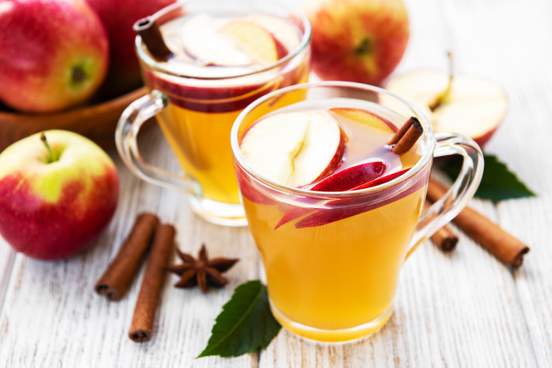
Lamb's wool
Definition: a sugared and spiced hot ale beverage containing the pulp of roasted apples
If you’re not up for some hot egg or cold cock ale, we are happy (and relieved) to suggest a mug or ladle of lamb’s wool, as defined by our unabridged dictionary (not to be confused with the self-explanatory lambswool), which sounds much more appealing. Similar to mulled cider, or perhaps a toddy, lamb’s wool was a festive winter drink made specifically with ale.
A plate of spiced cake was first handed about to the company, and then the Wassail Bowl, of which every one partook, by taking with a spoon, out of the ale, a roasted apple, and eating it, and then drinking the healths of the company out of the bowl, wishing them a Merry Christmas and a happy New Year: the ingredients put into a bowl, viz. ale, sugar, nutmeg, and roasted apples, were usually called Lamb’s Wool, and the night on which it used to be drunk (which was generally on the twelfth-eve) was commonly called Wassail-eve. I am of the opinion that the custom was very ancient; but from whence it arose, or why the mixture was called Lamb’s Wool, I do not at present pretend to account.
— Josiah Beckwith, letter to Sylvanus Urban, collected in The Gentleman’s Magazine and Historical Chronicle, Volume LIV (1784)
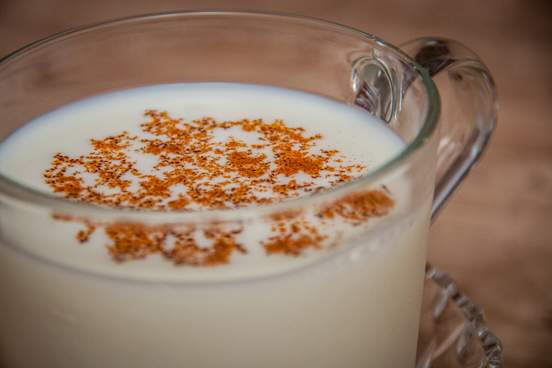
Posset
Definition: a hot drink of sweetened and spiced milk curdled with ale or wine
Posset is an old word (coming from the Middle English poshet (or possot)) for an old drink with many variations. Some recipes called for thickening this potent potable with bread, others for incorporating our old friend the egg, and some recommended both! Nowadays, searching for posset recipes yields instructions for making all sorts of pudding- or custard-like desserts, flavored with fruit and especially citrus.
Ale Posset (Hot). Boil a pint of new milk, and pour it over a slice of toasted bread. Stir in the beaten yolk of an egg and a small piece of butter, and sugar ad lib. Mix these with a pint of hot ale, and boil for a few minutes. When the scum rises the mixture is ready for use.
— Edward Spencer, The Flowing Bowl: A Treatise On Drinks of All Kinds and of All Periods, Interspersed with Sundry Anecdotes and Reminisces (Stanley Paul & Co., Ltd, 1925)




